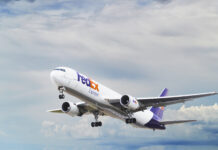
A leading trade group for airports said Monday (9 March) that airports in the Asia-Pacific region could see a drop in traffic of up to 24 percent in the first quarter and a loss of US$3 billion at least in revenues due to the ongoing COVID-19 coronavirus outbreak that has infected more than 100,000 people globally and killed more than 3,800.

Airports Council International (ACI) Asia-Pacific called on governments to grant various relief measures “tailored to suit local level contexts”. Within the Asia-Pacific region, mainland China, Hong Kong and South Korea remain at the centre of the effects with sizeable losses in traffic volumes with a sharp spike in the number of COVID-19 cases in several countries in the Middle East, expecting to significantly impact traffic downwards, the group said.

“While aeronautical revenues are under pressure, the cost base for airport operations remains unchanged as airports can neither close nor relocate their terminals during the outbreak,” ACI Asia-Pacific said. “Non-aeronautical sources of revenue usually serve as diversification of airport income streams, but they also provide an additional cushion during economic downturns. To a large extent, the COVID-19 is impacting Chinese passengers, the world’s largest and highest-spending outbound travel group, creating a wider worldwide effect on airports.”
“Unlike airlines, who can choose to cancel flights or relocate their aircraft to other markets to reduce operating costs, airport operators manage immovable assets that cannot be closed down,” said Stefano Baronci, director general of ACI Asia-Pacific. “They are faced with immediate cash flow pressures with limited ability to reduce fixed costs and few resources to fund capacity expansion efforts for longer-term future growth. For privately-held airports, the situation is even worse as they do not benefit from relief measure but are obliged to continue paying concession fees to governments.”

Current slot allocation rules require airlines to use at least 80 percent of their allocated slots under normal operations at an airport in order to keep them. The proposal for a global suspension of 80/20 usage recently made by the International Air Transport Association (IATA) would give airlines the freedom to cancel flights to/from congested airports “not necessarily linked to the COVID-19 outbreak, jeopardising the ability for countries to stay connected with the world, which in turn will have knock-on effects on their economies”.
“We are sympathetic with the airlines’ needs to avoid flying empty airplanes simply to retain airport slots. But this should not jeopardise the connectivity of passengers and distort the competitive field,” Baronci said. “ACI Asia-Pacific favours an evidence-based market-by-market review which evaluates rates of infection, load and scheduled bookings. While we prefer local measures, in the event of a global alleviation package, airports, airlines and slot coordinators should explore the feasibility of a relaxation of the 80/20 rule to a lower threshold or a calculation of the historic rights for airlines based on a shorter period through their respective associations.”













